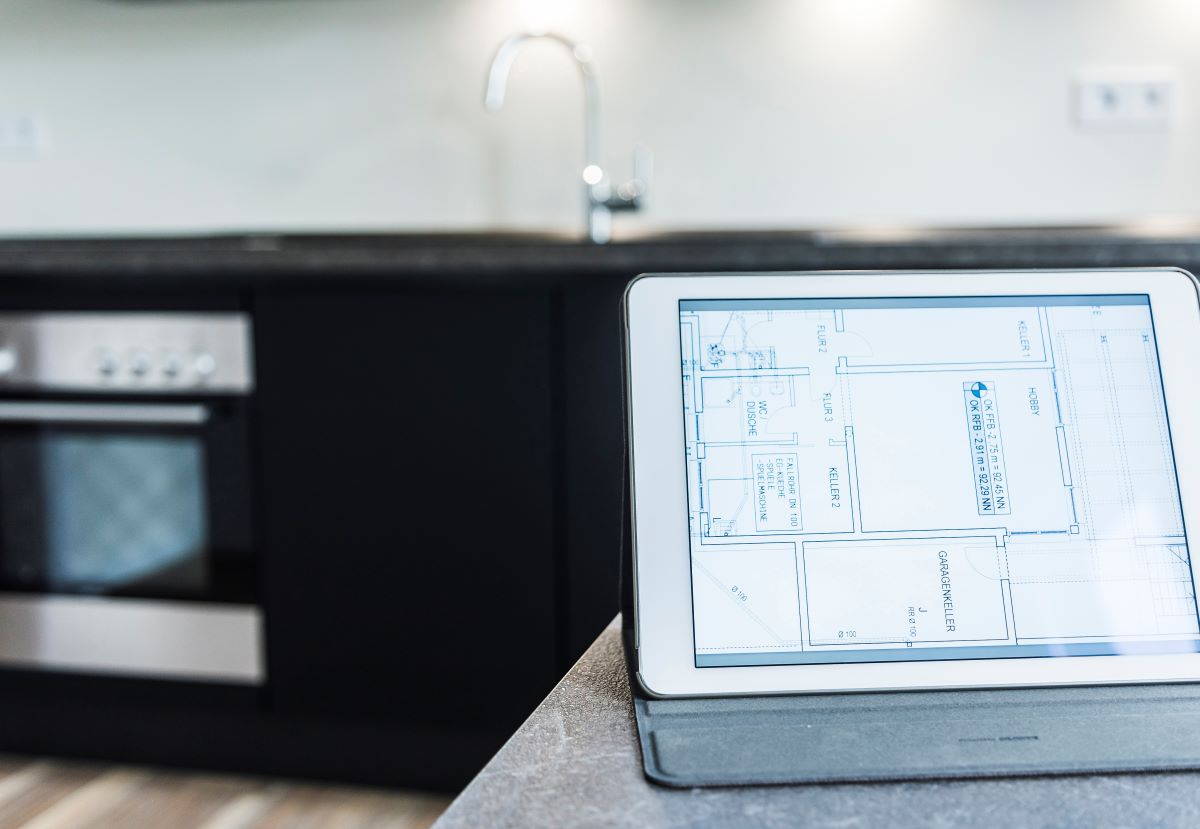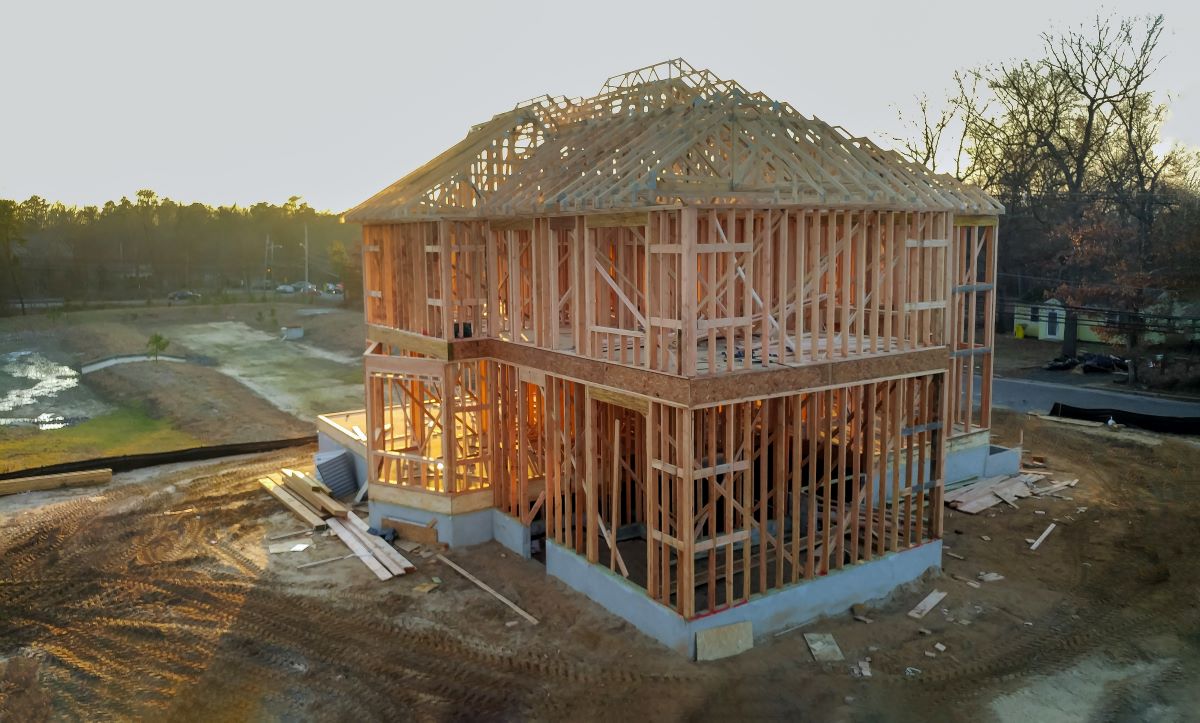Remodeling your kitchen is an exciting opportunity to enhance both the functionality and aesthetics of your home. Whether you’re planning a full kitchen overhaul or a simple upgrade like updating kitchen countertops, knowing what permits are required is crucial to staying compliant with local regulations in The Woodlands, TX. Without the proper approvals, your project could face costly delays or even be halted altogether.
At DWR Interiors, our team of experienced kitchen remodeling contractors ensures your project meets all the necessary legal and safety requirements—so you can focus on bringing your dream kitchen to life. This page will guide you through everything you need to know about obtaining a permit to remodel a kitchen, the latest building permit laws in Texas, and what types of home improvements require city or county approval.
Why Permits Matter for Kitchen Remodeling in The Woodlands, TX
A permit to remodel a kitchen serves as official permission from your local government to carry out construction or renovation work. The goal is to ensure that all work meets local building codes, zoning requirements, and safety standards. In The Woodlands, TX, permits help maintain the integrity of residential structures and safeguard homeowners from substandard or unsafe renovations.
Whether you’re redesigning your layout with a new kitchen design or hiring kitchen cabinet remodelers to install custom cabinetry, securing the appropriate permits protects your investment and gives you peace of mind.
 What Home Improvements Require a Permit in Texas?
What Home Improvements Require a Permit in Texas?
When planning home renovations in Texas, one of the most important steps is determining whether your project requires a permit. Failing to obtain the proper approval can lead to fines, construction delays, and even issues when selling your home. Whether you’re remodeling a kitchen, adding a room, or changing your electrical system, understanding the types of home improvements that require permits in Texas is essential for staying on the right side of the law.
The state of Texas delegates most building permit regulations to local governments, so requirements can vary by city or county. However, there are several types of projects that commonly require permits statewide. Working with licensed professionals like kitchen remodeling contractors or contractors for kitchen remodel jobs ensures you’re following local codes and building safely.
Structural Renovations
Any changes to your home’s structure almost always require a permit in Texas. This includes:
- Removing or relocating walls (especially load-bearing walls)
- Adding new rooms or extensions
- Altering rooflines
- Foundation repairs
These changes can impact the structural integrity of your home, so local building departments need to inspect and approve the work before and after construction.
If your renovation includes structural work as part of a kitchen remodel design, such as creating an open-concept layout by knocking down a wall, you will need a permit to proceed.
Electrical and Plumbing Updates
Texas building codes are strict when it comes to updating electrical systems and plumbing—two areas that directly affect home safety. You will need a permit if your project includes:
- Adding or moving electrical outlets
- Installing new light fixtures
- Upgrading electrical panels
- Running new plumbing lines
- Installing or relocating a sink, dishwasher, or garbage disposal
For example, if you’re planning to install pendant lighting over a new kitchen island or move your sink to a different location during your kitchen renovation, these updates will require both permits and inspections.
Licensed kitchen Reno contractors and kitchen cabinet remodelers are familiar with these types of upgrades and can ensure they are completed safely and according to code.
HVAC Work
Changes to your heating, ventilation, or air conditioning (HVAC) systems also require permits in most Texas municipalities. This includes:
- Replacing or relocating HVAC units
- Installing new ductwork
- Adding ventilation in kitchens or bathrooms
HVAC updates may not always be part of a standard kitchen design, but many modern kitchens include enhanced ventilation systems such as range hoods, which do require proper permitting.
Major Kitchen Remodeling
Kitchen remodels often include multiple systems: electrical, plumbing, cabinetry, countertops, flooring, and lighting. Because of this complexity, a permit to remodel kitchen spaces is typically required if you are doing more than surface-level updates.
Permit-required kitchen projects include:
- Installing new countertops that require structural changes
- Moving or installing new cabinets
- Updating appliances that require new plumbing or gas lines
- Rewiring or moving outlets
- Installing new flooring that impacts subflooring
Even if you’re only planning to update kitchen countertops, if that change involves cutting into walls or reworking plumbing or wiring, a permit will likely be necessary.
Exterior Modifications
Exterior changes that alter the footprint or appearance of your home often require permits. This includes:
- Deck construction or replacement
- Fence installation (depending on height)
- Window or door replacements that alter dimensions
- Garage or carport additions
Although these projects may seem unrelated to indoor renovations, they can affect property lines, zoning, and structural integrity.
Projects That Typically Don’t Require a Permit
Not all home improvements require a permit in Texas. For example:
- Painting walls or ceilings
- Installing new flooring (without altering the structure)
- Replacing faucets (without altering plumbing)
- Installing pre-made cabinets (if no wall changes are involved)
- Adding new appliances without changing hookups
However, even these simpler updates can sometimes lead to more involved work. That’s why it’s a good idea to consult with professionals—especially when planning projects with integrated systems like kitchens by design.
Let the Pros Handle the Paperwork
Because permit requirements can be highly specific, homeowners often rely on professionals to manage the process. Reputable kitchen remodeling contractors and kitchen cabinet remodelers will know exactly what documentation is required and will handle the submission process for you.
When in doubt, always check with your local building department before starting any home renovation. It’s better to be cautious than to face setbacks down the road.
 What Is the New Building Permit Law in Texas?
What Is the New Building Permit Law in Texas?
As of recent legislation, Texas introduced updates to streamline and clarify the permitting process for residential remodeling. One of the most important changes is the emphasis on timely permit reviews and reducing bureaucratic delays for homeowners and builders.
Highlights of the new building permit law in Texas include:
- Accelerated Timelines: Municipalities are now encouraged to process residential building permits within 30 days.
- Standardized Requirements: Cities must clearly outline what documentation is needed to submit for permits.
- Permit by Rule Provisions: Certain small-scale residential projects may qualify for “permit by rule,” eliminating some red tape.
- Online Submissions: More municipalities now accept online applications and inspections, simplifying the permit process.
These changes make it easier for homeowners and kitchen remodeling contractors to stay on track with renovation timelines. However, it’s still essential to work with knowledgeable professionals who understand how these new laws apply specifically to your home and location.
 Do You Need a Permit to Build a House in Texas?
Do You Need a Permit to Build a House in Texas?
Yes, you absolutely need a permit to build a house in Texas. Whether you’re constructing a custom home from the ground up or developing an investment property, a building permit is required to ensure the project meets safety, zoning, and structural standards. While Texas offers a relatively streamlined permitting process compared to some other states, the requirements are still detailed and must be followed precisely—especially when your project includes complex interior elements like a full kitchen remodel design.
If you’re building a home in a city or county like The Woodlands, TX, you’ll likely need a combination of building, mechanical, electrical, and plumbing permits before any construction begins. These permits not only validate your plans through a legal framework but also help safeguard your long-term investment by ensuring everything is up to code.
The Role of Building Permits in New Home Construction
Building a home involves a broad range of systems—structural framing, foundations, utility connections, insulation, energy efficiency, and interior installations such as modern kitchens. Each of these components must comply with current local, state, and national codes. A building permit ensures your home is built legally and safely, meeting all relevant requirements.
Here are the typical types of permits required to build a new home in Texas:
- Building Permit: Authorizes the overall structure, foundation, walls, and roofing.
- Electrical Permit: Required for installing wiring, outlets, breaker panels, and lighting systems.
- Plumbing Permit: Covers water lines, sewage, fixtures, and any gas appliances.
- Mechanical Permit: Necessary for installing HVAC systems, including ductwork and vents.
- Energy Compliance Certificate: Required to meet state energy efficiency standards.
- Zoning Approval: Ensures the land is zoned for residential construction.
These permits are often issued in phases and are subject to inspection before you can move on to the next stage of construction. For instance, before drywall can be installed, all plumbing and electrical rough-ins must pass inspection.
Permits and Kitchens: What to Expect
The kitchen is one of the most complex rooms in any house, especially in new construction. You’ll be incorporating electrical circuits, plumbing lines, ventilation, and cabinetry—all of which must meet code. Whether you’re working with kitchen remodeling contractors after the home is built or planning a high-end layout with your home builder, the kitchen will require close permit and inspection oversight.
From updating kitchen countertops and installing appliances to designing smart layouts with kitchen cabinet remodelers, every kitchen feature must be code-compliant. This is where experience matters: having a knowledgeable contractor involved from the beginning helps avoid delays and costly redesigns.
County vs. City Permits in Texas
One unique aspect of building in Texas is the variation in permit regulations between rural counties and cities. In many rural counties, there are fewer permitting requirements—sometimes limited only to septic systems or floodplain development. However, in incorporated areas like The Woodlands, you’ll be working with municipal building departments that require full permitting for residential construction.
No matter the location, however, the moment you incorporate features like electricity, gas lines, and water supply systems, permits will be required. If your kitchen design includes high-end appliances, custom lighting, or structural modifications like kitchen islands, those elements will fall under stricter permit regulations—even in new builds.
Building Smart: Why Permits Matter
Some homeowners may be tempted to cut corners by bypassing permits, especially when building on private land. However, this is a risky move that can lead to:
- Fines and stop-work orders
- Difficulties in selling the home
- Void warranties or insurance issues
- Safety hazards due to uninspected work
Incorporating features like kitchens by design, energy-efficient layouts, and smart home systems adds value—but only if they’re built legally and pass inspections.
How Professionals Help
Building a house isn’t just about laying bricks and pouring concrete—it’s about coordinating every element so it works together safely and efficiently. This is why hiring professionals such as contractors for kitchen remodel work or general home construction is vital.
Your builder or contractor will typically:
- Draft code-compliant blueprints
- Submit permit applications
- Schedule and coordinate inspections
- Make necessary adjustments to meet evolving code standards
Experienced professionals are also familiar with the new permit laws in Texas, including recent changes like the 45-day application review window and updated building codes for energy, plumbing, and structural systems.
Yes, permits are not only required but essential for building a house in Texas. From foundation to kitchen remodeling, every phase of construction must meet regulatory standards. Ensuring your dream home is built safely and legally starts with working alongside qualified professionals who understand how to navigate Texas’s permitting landscape.
Thinking about your ideal kitchen in your new home? From kitchen Reno contractors to energy-efficient designs, DWR Interiors is here to help make it happen the right way—right from the start.
Kitchen Remodeling Made Easy in The Woodlands, TX
Looking for a seamless kitchen renovation experience? Kitchen Remodeling Made Easy in The Woodlands, TX is more than just a promise—it’s a process. At DWR Interiors, we simplify every step of your remodel, from initial design to final inspection.
Our experienced kitchen Reno contractors guide you through:
- Initial Consultation: We discuss your goals, budget, and style preferences.
- Kitchen Design Planning: From modern kitchens to traditional charm, we help you select cabinetry, lighting, surfaces, and layouts.
- Permit Acquisition: We handle the paperwork and ensure that your remodel meets all local code requirements.
- Construction & Installation: Our skilled team installs your materials with precision, ensuring both function and beauty.
- Final Walkthrough: We inspect every detail to ensure your complete satisfaction.
With DWR Interiors, there are no surprises. Just timeless kitchens designed to fit your lifestyle, backed by craftsmanship and code-compliant execution.
Frequently Asked Questions About Kitchen Permits in The Woodlands, TX
How much does a kitchen remodeling permit cost?
Costs vary based on project scope, but most permits for kitchen remodeling fall between $200 and $600 in The Woodlands area. This may increase if structural work is involved.
How long does it take to get a permit?
Most permits are processed within 1–3 weeks, depending on the complexity of the project and the responsiveness of local officials.
Can I apply for a permit myself?
Yes, homeowners can apply for permits, but the process can be complex. Most people prefer their kitchen remodeling contractors to handle the paperwork.
Do I need an inspection after remodeling?
Yes. Your project will usually require one or more inspections to ensure everything is compliant with local codes.
Ready to Start Your Kitchen Remodel in The Woodlands?
Your dream kitchen is within reach—and it starts with a plan that includes proper permitting. Whether you’re interested in modern kitchens, updating finishes, or creating a completely new kitchen remodel design, the right team makes all the difference.
Let DWR Interiors handle the heavy lifting, from permitting to design to construction.
Call us today at 281-419-4144 to schedule your consultation and bring your kitchen vision to life!
